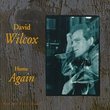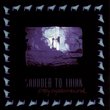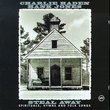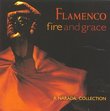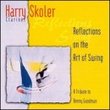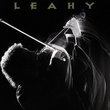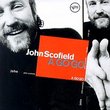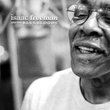| All Artists: Jan Dismas Zelenka, Robert Kohnen Title: Zelenka: 6 Sonatas for two Oboes and Bassoon Members Wishing: 1 Total Copies: 0 Label: Accent Records Release Date: 1/1/1999 Album Type: Import Genre: Classical Styles: Chamber Music, Historical Periods, Baroque (c.1600-1750), Classical (c.1770-1830) Number of Discs: 2 SwapaCD Credits: 2 UPCs: 750582473821, 5413633884803 |
Search - Jan Dismas Zelenka, Robert Kohnen :: Zelenka: 6 Sonatas for two Oboes and Bassoon
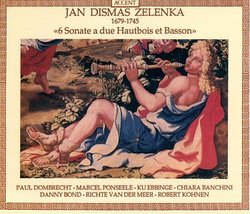 | Jan Dismas Zelenka, Robert Kohnen Zelenka: 6 Sonatas for two Oboes and Bassoon Genre: Classical
|
Larger Image |
CD DetailsSimilarly Requested CDs
|
CD ReviewsWonderful music expertly performed scott | Calgary, AB Canada | 06/20/2001 (5 out of 5 stars) "These six sonatas must be considered to be the high water-mark of baroque trio sonatas (much as Bach's Brandenburg concerti are the pinnacle of the concerto grosso), and are given a nearly flawless performance by this ad hoc ensemble. I first heard of Zelenka when I caught the second sonata being played on the radio and was completely overwhelmed by his contrapuntal skill. The moment in the first Allegro when the second theme is joined by the first remains one of my most memorable musical epiphanys. Each sonata here is equally splendid and are very rewarding for the active listener. The reading given by Ponseele, Dombrecht, et al is admirable in every way. Given that two of the works were recorded some six years before the others, there is no noticable difference between them. The fact that the same ensemble was used for each session undoubtably helps. The oboists aquit themselves with confidence, and are generally very secure. The bassoon part is surely one of the most demanding in the entire repetoire, and Danny Bond never falters (even in the thrilling fifth sonata). The only fault I could name are a couple of obvious edits. This is music that deserves to be famous and well known." The Zelenka Revival Got Rolling with These Sonatas... Giordano Bruno | Wherever I am, I am. | 07/07/2009 (5 out of 5 stars) "...and it's still gathering momentum, now that excellent performances of the "Bohemian Bach's" masses and other vocal works are available. But it was, in my experience, the advocacy of oboists and bassoonists that first alerted the musical world to the work of a composer many now consider second only to JS Bach himself. There are no more challenging and rewarding compositions for oboe or bassoon in the entire Baroque repertoire than these six trio sonatas. For expressive vivacity and technical exuberance, they belong on the same 'greatest hits' list as the Brandenburg Concerti. Despite their limited instrumentation - two oboes, bassoon, and continuo - they are almost infinite in variety and musical caprice. Jan Dismas Zelenka (1679-1745) had the double misfortune of being socially unskilled and musically useful. His tyrannical and egomaniacal patrons, Augustus I and II of Saxony, regarded his compositions as their sole property and jealously guarded it from publishers and other musical employers, yet they didn't relish the man or his music enough to give them prominence and promotion. Thus Zelenka nearly vanished, not rediscovered until the mid 20th C. Such possessiveness was not limited to Augustus the Strong, by the way; who knows whether we might not have lost other works of genius through the egotism of the rich and powerful. These six sonatas were composed, musicologists now believe, while Zelenka was nominally a student of J.J. Fux in Vienna, around 1715. In that, there's another similarity to the Brandenburgs, also a product of Bach's youth as a secular court composer, before either man devoted his art ardently to religion. Another recording of the sonatas, on modern oboes and bassoons, is available. Don't make the mistake of choosing that expressionless race-track version merely for the fame of the conductor, Heinz Hollinger. The difference is like that between real flowers with a few imperfect petals but with full fragrance and the glass flowers in the Harvard Museum. Danny Bond, the bassoonist in this performance, plays with a supple vocality that the modern bassoon, the old grandfather from Peter and the Wolf, can't possibly recreate. It's July, and this is, without reservation, the Giordano Bruno Must Buy Recording of the month!" Beautiful music by an unjustly neglected master Shami Ghosh | 09/08/2009 (5 out of 5 stars) "Zelenka was apparently a musician highly respected by his contemporary, J. S. Bach; unfortunately, he seems to have been far less respected by his patron, the Elector of Saxony, and ended his life without much money, and not very well-known. There's been a bit of a Zelenka revival in the past few decades, and while I wouldn't say that I subscribe (at least not yet) to the view I've read in a few places that he's as great as Bach, these two cds certainly show that he's a great master in his own right. And how can you resist the combination of two oboes and a bassoon (I have no vested interest here--I play the viola!). In his choral music, but even occasionally in these pieces, Zelenka's harmonies sound strangely modern, or alternatively, strangely renaissance, at least to my relatively untutored ear--they're certainly often different from the other standards of German baroque, Bach included.
These sonatas are probably the best known of Zelenka's works, and it's not hard to tell why; they're beautiful, easy-to-like pieces, and the sonorities of these instruments are very appealing indeed. The third sonata doesn't work quite as well, with one oboe being replaced by a violin: Zelenka seems not quite as comfortable in combining these two instruments as he is in the other works. I much prefer this recording to that of Heinz Holliger and his groupTrio Sonatas; period instruments suit Zelenka better, and the performers play in what seems to me a less mannered style than Holliger & co. I loved the performance of Concentus Musicus Wien (the first recording I heard of these works), but unfortunately they never recorded more than the one sonata. The only beef I have with this recording is the doubling of the bassoon part by the continuo group in a number of places; this has a tendency to overpower the wonderful playing of Danny Bond. But on the whole, an outstanding recording of great music." |

 Track Listings (12) - Disc #1
Track Listings (12) - Disc #1
